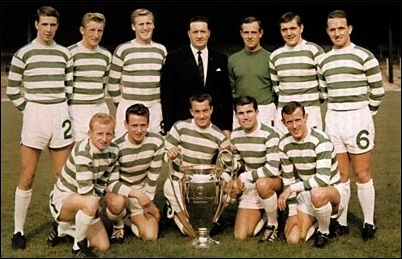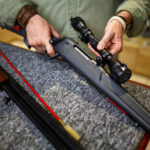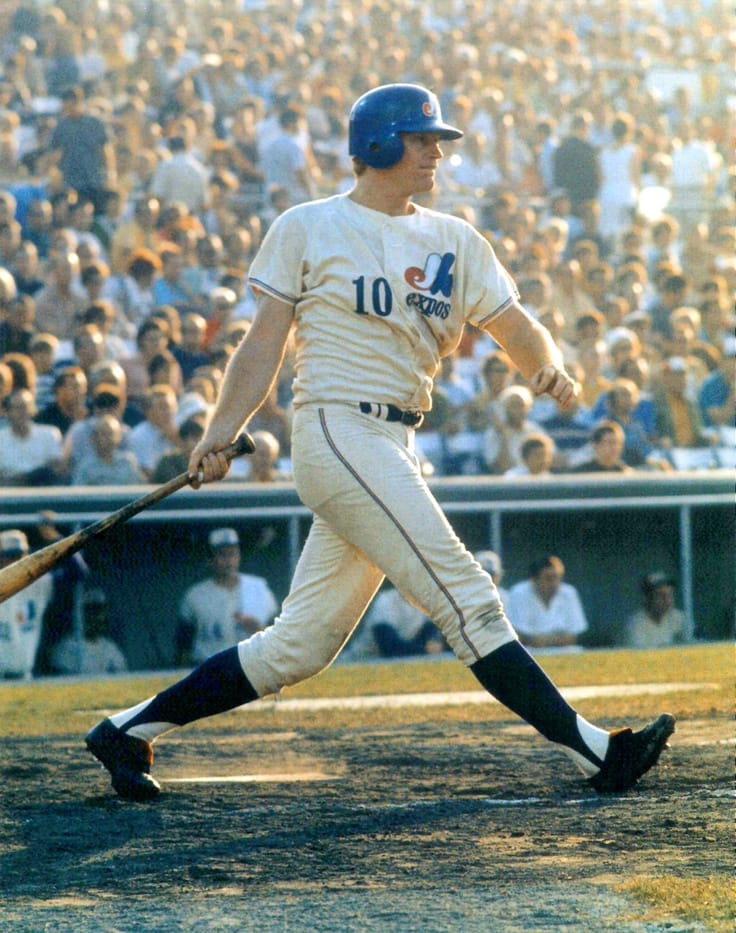‘The Lisbon Lions’ remembered: Celtic’s 1967 European Cup Winners
Of course the Champions League was not the original name of Europe’s premier soccer competition before it changed from the European Cup in 1992 after the new format and Champions League name was introduced by UEFA. Before that, it had always been a straightforward knock out competition, with each round being played over two matches on a home and away basis, until the final which was just one match. It was competed for by 16 teams who had won their country’s domestic championship with the final, like it is now, played in a stadium of a pre-selected country.
Celtic, as all involved with Soccer will know, became the first club from Britain to win the European Cup, which they achieved in 1967 against the formidable Inter Milan team, who had won the tournament in both 1965 and 1966. Celtic were complete underdogs, but few outside Scotland realised that the team, that would become known as the ‘Lisbon Lions’ had developed hugely and quickly under the guidance of their manager, Jock Stein and boasted a squad of players that could play at International level with many of them being the best in Europe in their positions.
Celtic in fact in 1967 had only just begun their run of success under Stein that eventually brought them nine consecutive Scottish League titles, between 1966 and 1974, Under Stein they also won eight Scottish Cups and six Scottish League Cups and reached a further European Cup Final in 1970 becoming the first British Club to reach two European Cup Finals; unfortunately they lost that one by 1-2 to Dutch side, Feyenoord.
In the first round of the 1967 competition, Celtic easily saw off the challenge of FC Zurich, winning 5-0 on aggregate, while the other two British teams who had qualified, Liverpool from England and Linfield from Northern Ireland, also qualified.
Celtic also won their second round tie with French Champions, Nantes, winning both legs 3-1, but Liverpool under Bill Shankly were knocked out by an Ajax team that included a certain Johan Cruyf in their team, but Linfield shocked everybody, upsetting the Euro odds, qualifying for the Quarter Final after an emphatic aggregate victory over Valerenga of Norway.
It was a lot tougher for Celtic in the quarter final, particularly after losing the first leg by 0-1 to FC Vojvodina of Yugoslavia. They managed to equalise that score after an hour of play in the second leg in Glasgow, but they had to wait until the last minute to win the match when captain, Billy McNeil headed home. Linfield very nearly qualified too only losing on aggregate by 2-3 to CSKA Sofia.
Celtic were drawn to face the great Czech side of the day Dukla Prague and won the first leg by 3-1 in Glasgow meaning that they had one foot in the final with a resolve that told football followers everywhere that they were not going to fall victim of fate like other British clubs had at this stage in the tournament in the past. Far from it, Celtic were going to the final in Lisbon and were not going to be stopped by any team; and as we all know they got there by drawing the away leg 0-0 and creating history by becoming the first British team to make the final. It was now just a question of winning the final against Inter.
Celtic fans arrived in the Portuguese capital in their thousands, many without tickets, but such was the optimism it became difficult to believe that Celtic could actually lose. However, a bad tackle from full back Tommy Craig on the skilful winger Capellini, in the box gave the Italian Champions a penalty which Italian International, Sandro Mazzola converted to give his side the lead, which stayed that way until half time.
Celtic who played a very quick passing game in a 4-2-4 formation began to get to grips with the match in the second half. Being behind possibly helped their cause as they knew that they had to attack to get on level terms and attack they did. They ran the Italians ragged until finally in the 62nd minute Full back Tommy Gemmell smashed the ball past the hapless Inter goalkeeper from 25 yards.
After that the game was all but over, Inter had no idea how to stop the Celtic momentum and the ‘Hoops’ just continued where they left off, with wave after wave of attacks. The game was decided with five minutes to go when Gemmell slid the ball into the path of Bobby Murdoch whose subsequent shot was deflected in by top scorer Steve Chalmers. Celtic had won, and the ‘Lions of Lisbon’ legend was born. Amazingly the Celtic team that day of Simpson, Craig, McNeill (capt.), Clark, Gemmell, Murdoch, Auld, Johnstone, Wallace, Chalmers, Lennox were all born within a thirty mile radius of Glasgow and most had been nurtured by the club from youth level upwards, an amazing achievement for home grown talent in any sportnot just soccer and one that should and is still fondly acknowledged and remembered to this day.










